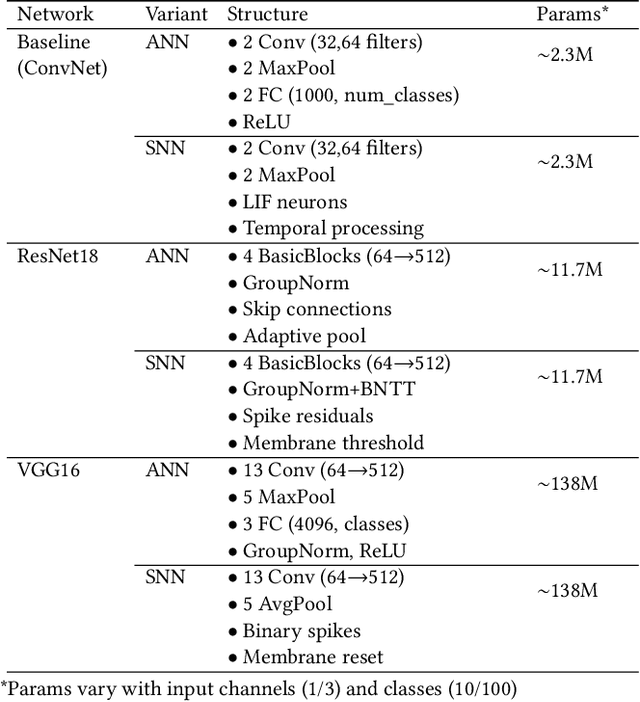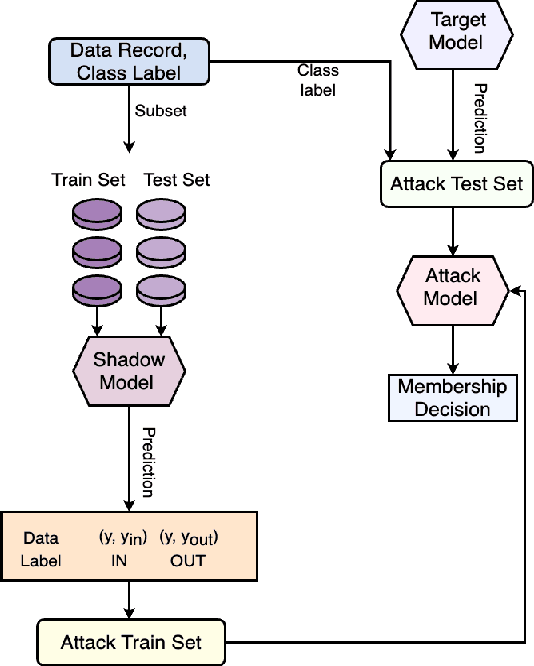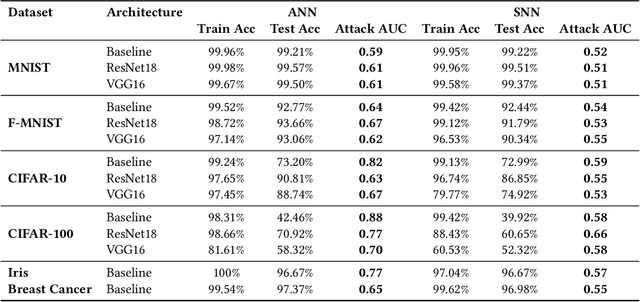Are Neuromorphic Architectures Inherently Privacy-preserving? An Exploratory Study
Paper and Code
Nov 10, 2024



While machine learning (ML) models are becoming mainstream, especially in sensitive application areas, the risk of data leakage has become a growing concern. Attacks like membership inference (MIA) have shown that trained models can reveal sensitive data, jeopardizing confidentiality. While traditional Artificial Neural Networks (ANNs) dominate ML applications, neuromorphic architectures, specifically Spiking Neural Networks (SNNs), are emerging as promising alternatives due to their low power consumption and event-driven processing, akin to biological neurons. Privacy in ANNs is well-studied; however, little work has explored the privacy-preserving properties of SNNs. This paper examines whether SNNs inherently offer better privacy. Using MIAs, we assess the privacy resilience of SNNs versus ANNs across diverse datasets. We analyze the impact of learning algorithms (surrogate gradient and evolutionary), frameworks (snnTorch, TENNLab, LAVA), and parameters on SNN privacy. Our findings show that SNNs consistently outperform ANNs in privacy preservation, with evolutionary algorithms offering additional resilience. For instance, on CIFAR-10, SNNs achieve an AUC of 0.59, significantly lower than ANNs' 0.82, and on CIFAR-100, SNNs maintain an AUC of 0.58 compared to ANNs' 0.88. Additionally, we explore the privacy-utility trade-off with Differentially Private Stochastic Gradient Descent (DPSGD), finding that SNNs sustain less accuracy loss than ANNs under similar privacy constraints.
 Add to Chrome
Add to Chrome Add to Firefox
Add to Firefox Add to Edge
Add to Edge